|
Books Should Be Free Loyal Books Free Public Domain Audiobooks & eBook Downloads |
|
|
Books Should Be Free Loyal Books Free Public Domain Audiobooks & eBook Downloads |
|
Romance Novels |
|---|
|
Book type:
Sort by:
View by:
|
By: Baroness Orczy (1865-1947) | |
|---|---|
 Lord Tony's Wife
Lord Tony's Wife
Another adventure of the Scarlet pimpernel! As the title suggests, it follows the story of Lord Tony and his wife, Yvonne. It is full of suspense adventure and romance. Lord Tony and Yvonne elope after some disturbing happenings including an angry mob and an assault on Yvonne by her own father. Later a man set on revenge and with the help of Chauvelin steal Yvonne away, and Lord Tony must go to the Scarlet Pimpernel for assistance. Will they be able to save her and her father from the clutches of Pierre Adet and Chauvelin? Will Lord Tony ever even see his wife again? | |
By: Sir Hall Caine | |
|---|---|
 The Manxman
The Manxman
Sir Thomas Henry Hall Caine, CH, KBE (14 May 1853 – 31 August 1931), usually known as Hall Caine, was a British author. He is best known as a novelist and playright of the late Victorian and the Edwardian eras. In his time he was exceedingly popular and at the peak of his success and his novels outsold those of his contemporaries. Many of his novels were also made into films. His novels were primarily romantic in nature, involving the love triangle, but they did also address some of the more serious political and social issues of the day... | |
By: Thomas Archer | |
|---|---|
 Miss Grantley's Girls, and the Stories She Told Them
Miss Grantley's Girls, and the Stories She Told Them
The author Thomas Archer lived 1830 – 1893; he wrote several juvenile stories, and this book: Miss Grantley’s Girls – And the Stories She Told Them, was published in 1886. It is a book in 7 chapters. Miss Grantley is a teacher and works as a governess, and she after some coaxing tells somewhat romantic stories to “her” girls. In the first chapter it says: “There was nothing romantic in Miss Grantley’s appearance, and yet she was the sort of person that you could not help looking at again and again if you once saw her... | |
By: Ben Jonson (1572-1637) | |
|---|---|
 The Forest
The Forest
The Forest is a short collection of Ben Jonson’s poetry. This collection of fifteen poems first appeared in the 1616 first folio of his collected works. | |
By: Max Beerbohm (1872-1956) | |
|---|---|
 Zuleika Dobson
Zuleika Dobson
‘A wickedly funny 1911 satire on undergraduate life in Edwardian Oxford’ in which the entire student body of Oxford university including the young, handsome aristocrat the Duke of Dorset falls hopelessly in love with Zuleika who is visiting her grandfather, the warden of Judas college, and ultimately commit mass suicide at the end of ‘Eights Week’ | |
By: Francis Brett Young (1884-1954) | |
|---|---|
 The Tragic Bride
The Tragic Bride
The story centers on Gabrielle Hewish, only and lonely child of Sir Jocelyn Hewish, a loveable lush and owner of the peaceful Roscarna estate nestled in the Irish countryside. In due course, young Gabrielle falls in love with a Navy man whose untimely demise sends her into a depression, and the consequences of which alter her future, culminating in a fascinating and quite unpredictable relationship with Mrs. Payne and her troubled son Arthur. A story of understanding in it’s finest sense and aptly titled, The Tragic Bride is both interesting as a story and telling as a character study. | |
By: Payne Erskine | |
|---|---|
 The Mountain Girl
The Mountain Girl
A delightful love-story, genuinely American in feeling and treatment. The story is stirring, the heroine is ideal. | |
By: Lyndon Orr pseudonym of Harry Thurston Peck (1856-1914) | |
|---|---|
 Famous Affinities of History: The Romance of Devotion
Famous Affinities of History: The Romance of Devotion
"Famous Affinities of History" is a book of passion-filled accounts of the most famous love affairs of history. The stories of Cleopatra, Victor Hugo, Honore de Balzac, Jonathan Swift, Charles Dickens, Karl Marx, Percy Bysshe Shelley, Byron, George Sand and other famous people of all times (even those of royal blood are not spared), are dealt with in Lyndon Orr's own interesting and suspenseful style. Written in four volumes, this book makes for an informative, interesting and thoroughly enjoyable read, giving us an insight into the lives and lifestyles of various popular figures of history. | |
By: George Moore | |
|---|---|
 Esther Waters
Esther Waters
“She stood on the platform watching the receding train. A few bushes hid the curve of the line; the white vapour rose above them, evaporating in the pale evening. A moment more and the last carriage would pass out of sight. The white gates swung forward slowly and closed over the line”. Thus opens the novel about Esther Waters, young, pious woman from a poor working class family who, while working as a kitchen maid, is seduced by another employee, becomes pregnant, is deserted by her lover, and against all odds decides to raise her child as a single mother... | |
By: Edward Phillips Oppenheim (1866-1946) | |
|---|---|
 An Amiable Charlatan
An Amiable Charlatan
An Englishman is enjoying his dinner at Stephano's, at which he is a regular diner. A man enters quickly, sits at his table, starts eating his food, and hands him a packet underneath the table! So begins Paul Walmsley's acquaintance - and adventures - with American adventurer Joseph H. Parker and his lovely daughter, Eve. (Intro by TriciaG)Note that there is an alternate reading of section 8. Both are excellent renditions, so enjoy either or both of them. | |
By: Théophile Gautier (1811-1872) | |
|---|---|
 Clarimonde
Clarimonde
Original title “La Morte Amoreuse.” This is the story of a priest named Romauld, and his all-consuming love for the beautiful courtesan, Clarimonde. | |
 Romance of a Mummy and Egypt
Romance of a Mummy and Egypt
MANUAL OF SURGERY, OXFORD MEDICAL PUBLICATIONSBY ALEXIS THOMSON, F.R.C.S.Ed.PREFACE TO SIXTH EDITION Much has happened since this Manual was last revised, and many surgical lessons have been learned in the hard school of war. Some may yet have to be unlearned, and others have but little bearing on the problems presented to the civilian surgeon. Save in its broadest principles, the surgery of warfare is a thing apart from the general surgery of civil life, and the exhaustive literature now available on every aspect of it makes it unnecessary that it should receive detailed consideration in a manual for students... | |
By: Susan Warner (1819-1885) | |
|---|---|
 Nobody
Nobody
There are many romantic tales about a handsome and rich man falling in love with a beautiful lower class woman over the objections of his family. Remember Elizabeth Bennett and Fitzwilliam Darcy? however, it takes more than a good woman to secure a man's happiness. He has to have mental strength. It is not certain that our hero, Tom, has that. Lois is a great woman. However, according to his sister, she is a "nobody." Does money and position control everything? Certainly not. Good people deserve to be happy... | |
By: George Gissing (1857-1903) | |
|---|---|
 Nether World
Nether World
This sad social novel revolves around the problematic issue of money. Michael returns from Australia to London a rich man. However, he hides this fact from everybody and spends money only on the things he really needs. He contemplates leaving his money to his granddaughter Jane, under the condition that she donate at least most of it to charity. However, Jane is not sure she can do it. This novel tells much about working class life in 19th century London. | |
 Life's Morning
Life's Morning
This is the story of a poor young lady Emily Hood who while working as a governess falls in love with Wilfrid Athel the son of her employer. They become engaged, however things do not run smoothly after a visit home to her parents and Emily has to make a heartbreaking choice. | |
By: Herbert George Jenkins (1876-1923) | |
|---|---|
 John Dene of Toronto; a Comedy of Whitehall
John Dene of Toronto; a Comedy of Whitehall
John Dene comes to England with a great invention, and the intention of gingering-up the Admiralty. His directness and unconventional methods bewilder and embarrass the officials at Whitehall, where, according to him, most of the jobs are held by those "whose great-grandfathers had a pleasant way of saying how-do-you-do to a prince." Suddenly John Dene disappears, and the whole civilised world is amazed at an offer of £20,000 for news of him. Scotland Yard is disorganised by tons of letters and thousands of callers... | |
By: Stewart Edward White (1873-1946) | |
|---|---|
 The Blazed Trail
The Blazed Trail
Stewart Edward White wrote fiction and non-fiction about adventure and travel, with an emphasis on natural history and outdoor living. White's books were popular at a time when America was losing its vanishing wilderness and many are based on his experiences in mining and lumber camps. The Blazed Trail is the story of early lumbermen in the northern woods of Michigan. The novel portrays the challenges faced by the workers focusing on one, Harry Thorpe, as he endeavors to be successful though completely unskilled when he enters the woods... | |
By: Leigh Brackett (1915-1978) | |
|---|---|
 Black Amazon of Mars
Black Amazon of Mars
Carrying out the last wishes of a comrade, mercenary Eric John Stark takes on the task of returning a stolen talisman to a walled city near the Martian pole; a city that guards the mysterious Gates of Death. Now all he has to do is get past the brutal clans of Mekh and the shadowy Lord Ciaran to get to Kushat where they’ll probably attempt to kill him. All while he tries to hold on to a talisman that imprints ancient memories of the Gates in his mind. That’s not easy for a human raised by Mercurian aborigines... | |
By: Charlotte Mary Yonge (1823-1901) | |
|---|---|
 Heir of Redclyffe
Heir of Redclyffe
The Heir of Redclyffe (1853) was the first of Charlotte M. Yonge's bestselling romantic novels. Its religious tone derives from the High Church background of her family and from her friendship with a leading figure in the Oxford Movement, John Keble, who closely supervised the writing of the book. The germ of its plot was suggested by her friend Marianne Dyson. | |
By: Amy Le Feuvre (1861-1929) | |
|---|---|
 Carved Cupboard (Dramatic Reading)
Carved Cupboard (Dramatic Reading)
Agatha, Gwen, Clare and Elfie have always been told that they will inherit their aunt's house. But when their aunt dies, she leaves it all to their intolerable cousin James. What will they do? Will the verses Nannie gives them prove true? | |
By: Susan Glaspell (1876-1948) | |
|---|---|
 Visioning , A Novel
Visioning , A Novel
"The Visioning, Susan Glaspell's second novel, tells about Katie Jones, a young woman who lives in the comfortable world she knows with a charming circle of friends. Her brother is an army officer, and her uncle lives in Washington. The world she knows is the world they let her see. Until Anne comes into the picture. Katie saves Anne from killing herself. Katie invents a story about Anne, a story which suits Katie's world, but what would she do, and feel, when she discovers the truth? The story focuses around Katie's eye opening experiences and her search for place and meaning in the new world she slowly discovers... | |
By: Alexander Pushkin (1799-1837) | |
|---|---|
 Daughter of the Commandant
Daughter of the Commandant
"The Daughter of the Commandant" (better known as "The Captain's Daughter") is a historical novel by the Russian writer Alexander Pushkin, and is considered to be his finest prose work. The novel is a romanticized account of Pugachev's Rebellion in 1773-1774. The 17-year-old Pyotr Andreyich is sent by his father to military service in a remote Russian outpost, where he leans honor and love while being caught up in a violent uprising of tribal groups against the imperial government. | |
By: Edward Streeter (1891-1976) | |
|---|---|
 Dere Mable
Dere Mable
Bill is in training camp, preparing to go off to World War I. This book is a collection of love letters written to his sweetheart, Mable. The letters are humorous, mis-spelled, and have many stories of life in an army camp – all from Bill’s unique perspective. | |
By: Mamie Dickens (1838-1896) | |
|---|---|
 My Father As I Recall Him
My Father As I Recall Him
“If, in these pages, written in remembrance of my father, I should tell you, my dear friends, nothing new of him, I can, at least, promise you that what I shall tell will be told faithfully, if simply, and perhaps there may be some things not familiar to you.” So begins chapter one of My Father as I Recall Him, the personal recollections of Mary Dickens, (Mamie, as she was called), the oldest daughter of the great novelist, Charles Dickens. | |
By: Louis Tracy (1863-1928) | |
|---|---|
 The Silent Barrier
The Silent Barrier
The Silent Barrier is a story of mystery and romance with Charles K. Spencer, a well-to-do young American mining engineer, as main character. Drinking his water in a hotel in London one day, he overhears a conversation between two young women, one of whom speaks of going to Switzerland. He decides to play "fairy godfather" and send the comparatively poor, but most amicable other girl there, without her knowing anything of him, under the pretext of furthering her career as a writer for a scientific journal. However, the girl is shadowed on her journey by the mysterious Mr. Mark Bower. Convinced from the first that Bower is a rogue, Mr. Spencer decides to follow them to protect the girl... | |
By: S. Baring-Gould (1834-1924) | |
|---|---|
 Bladys of the Stewponey
Bladys of the Stewponey
The setting, geography and history of this story by Rev'd Sabine Baring-Gould, author of Onward Christian Soldiers and other well-known hymns, are all accurate, or at least as accurate as local lore will allow. Kinver has long been a midlands beauty spot, and the UK National Trust own and open one of the rock-dwellings mentioned. The 'Stewponey' too was an inn until a year or two into the twenty-first century - the present reader having stopped there for a drink and a meal many times.The story, whether... | |
By: Samuel Merwin | |
|---|---|
 Calumet "K"
Calumet "K"
"A novel, with several elements of rather unusual interest. As a tale, it is swift, simple, and absorbing, and one does not willingly put it down until it is finished. It has to do with grain-elevator business, with railways, strikes, and commercial and financial matters generally, woven skilfully into a human story of love." --The Commercial Advertiser "'Calumet "K"' is a novel that is exciting and absorbing, but not the least bit sensational. It is the story of a rush.... The book is an unusually good story; one that shows the inner workings of the labor union, and portrays men who are the bone and sinew of the earth... | |
 The Merry Anne
The Merry Anne
This 1904 maritime adventure is set in the Great Lakes region, upon water and in wood. Our hero is caught in a smuggling scheme and may lose his boat and his sweetheart. With a fast pace and interesting plot, the story is made realistic with very modern "bad-guys". | |
By: Kate Douglas Wiggin (1856-1923) | |
|---|---|
 A Cathedral Courtship
A Cathedral Courtship
A romantic comedy. A pretty young American girl tours English Cathedrals, with her very blue-blooded Aunt. Then boy meets girl. Boy chases girl. Boy loses girl. Boy finds girl. Finally, girl catches boy with the help of a mad bull. | |
By: Edmond Rostand (1868-1918) | |
|---|---|
 Cyrano de Bergerac
Cyrano de Bergerac
One of the most beloved French plays of all time, Cyrano de Bergerac is a clever and tragic tale of truth concealed and love denied. Its titular character is a proud, daring swordsman and genius poet who has one terrible flaw: an abnormally large nose. Too afraid of rejection to confess his love for the beautiful Roxane, Cyrano helps her brainless but handsome suitor Christian to woo her, providing him with love letters while resolutely keeping his own passion a secret. | |
By: Mayne Reid (1813-1883) | |
|---|---|
 Gwen Wynn - A Romance of the Wye
Gwen Wynn - A Romance of the Wye
Gwendoline Wynn, our heroine, is an orphan-heiress who lives on the river Wye. She will live with aunt until she comes of age and her money. Vivian Ryecroft, our hero and a captain in the Hussars, is on a leave of absence in Herefordshire, salmon fishing on the Wye. Gwen and Vivian have a chance, and brief, encounter on the Wye, and Vivian is enchanted. Will our hero and heroine find love? Will it last? | |
By: Sara Ware Bassett (1872-1968) | |
|---|---|
 Flood Tide
Flood Tide
Willie Spence may have been a bit eccentric by most standards, but he had a knack for creating gadgets in his small workshop at his home on Cape Cod. Whenever he was 'ketched' by an 'idee' he had to see it to completion, and always did. His small cottage on the Cape had become a labyrinth of string and wires tacked here and there so as to make life a bit challenging for his housekeeper Celestina. But she and most everyone else among the coastal towns and villages loved the old man for all his eccentricities as Willie spent his waning years just waiting for his ship to come in. | |
By: Eleanor H. Porter (1868-1920) | |
|---|---|
 Mary Marie
Mary Marie
A charming 'coming of age' story about a young girl, Mary Marie, whose young life is thrown into turmoil as her parents divorce. As she leads two lives, she comes to realize that her parents still love one another, and engineers a reunion. In the end, we discover the long-lasting effect of this turmoil on the adult Mary Marie, and her own marriage." | |
By: Charles Clark Munn (1848-1917) | |
|---|---|
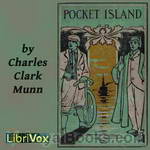 Pocket Island
Pocket Island
Along the coast of Maine are littered thousands of small islands. One such, named 'Pocket Island' by the locals was so called because of a pocket formed twice daily by the waning of the tides. The coast of Maine holds many secrets and legends, and Pocket Island was no exception. Subtitled "A Story of Country Life in New England", this story holds such varied and fascinating glimpses into the lives of a few individuals, and is not limited to merely a story of ghosts, of war, of barn dances, friendship, tales of rum-runners, smugglers, and seafarers... | |
By: Katherine Thurston (1875-1911) | |
|---|---|
 The Masquerader
The Masquerader
The Masquerader is one of two Katherine Cecil Thurston’s books that appeared on the Publisher’s Weekly best-sellers list in 1905. The Masquerader is part mystery, part romance and part political thriller – all tied up in one neat package. Nature has a way of sometimes making two people nearly indistinguishable in appearance. Such is the premise for this book. John Chilcote, a British politician, and John Loder, a man down on his luck meet by accident one night during one of London’s worst fogs... | |
By: Lagerlöf, Selma (1858-1940) | |
|---|---|
 The Treasure
The Treasure
Selma Lagerlöf was born in Vaermland, Sweden, in 1858 and enjoyed a long and very successful career as a writer, receiving the Nobel-Prize in Literature in 1909. She died in Vaermland in 1940. The Treasure (Herr Arnes penningar) is a fairly short Novel, both a Drama and a Ghost Story. Published in 1904 and the English translation in 1923. The story is set in Bohuslaen on the West coast of Sweden in the middle of the 16th Century. Herr Arne, the old Parson in Solberga and all his household are brutally murdered, and his great Treasure stolen... | |
By: Alfred, Lord Tennyson (1809-1892) | |
|---|---|
 Idylls of the King
Idylls of the King
Idylls of the King, published between 1856 and 1885, is a cycle of twelve narrative poems by the English poet Alfred, Lord Tennyson which retells the legend of King Arthur, his knights, his love for Guinevere and her tragic betrayal of him, and the rise and fall of Arthur's kingdom. The whole work recounts Arthur's attempt and failure to lift up mankind and create a perfect kingdom, from his coming to power to his death at the hands of the traitor Mordred. Individual poems detail the deeds of various knights, including Lancelot, Geraint, Galahad, and Balin and Balan, and also Merlin and the Lady of the Lake. | |
 The Princess
The Princess
The Princess is a serio-comic blank verse narrative poem, written by Alfred Tennyson, published in 1847. The poem tells the story of an heroic princess who forswears the world of men and founds a women's university where men are forbidden to enter. The prince to whom she was betrothed in infancy enters the university with two friends, disguised as women students. They are discovered and flee, but eventually they fight a battle for the princess's hand. | |
By: Mór Jókai (1825-1904) | |
|---|---|
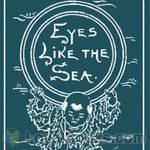 Eyes Like the Sea
Eyes Like the Sea
He was a painter, a poet, a novelist. He lived during the Hungarian revolution and his love of freedom meant his life was often in peril. She was his first love, this girl with the eyes like the sea. She was at heart noble, good and loving. What an excellent lady might have been made out of this woman, if she had only met with a husband who, in the most ordinary acceptance of the word, had been a good fellow, as is really the case with about nine men out of every ten. But she always managed to draw the unlucky tenth out of the urn of destiny... | |
By: Thomas Lodge | |
|---|---|
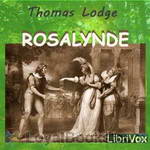 Rosalynde or, Euphues' Golden Legacie
Rosalynde or, Euphues' Golden Legacie
This novel, which Shakespeare adapted in his pastoral comedy As You Like It, is the archetypal pastoral adventure. Two young persons of high birth, who have recently lost their fathers (one to death, one to banishment), fall in love but are separated almost at once and forced to flee to the Forest of Arden. There they meet again, but as Rosalynde is disguised for safety as a boy, named Ganymede, her lover Rosader does not recognize her. Once Rosader has confided his love to Ganymede, they play a game in which the "boy" poses as Rosalynde to give Rosader practice in wooing... | |
By: Robert Hugh Benson (1871-1914) | |
|---|---|
 Come Rack! Come Rope!
Come Rack! Come Rope!
Come Rack! Come Rope! is a historical novel by the English priest and writer Robert Hugh Benson, a convert to Catholicism from Anglicanism. Set in Derbyshire at the time of the Elizabethan persecution of Catholics, when being or harboring a priest was considered treason and was punishable with death, it tells the story of two young lovers who give up their chance of happiness together, choosing instead to face imprisonment and martyrdom, so that "God's will" may be done.The book was written nearly nine years after Benson's reception into the Catholic Church... | |
By: Elizabeth Inchbald (1753-1821) | |
|---|---|
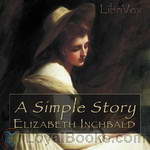 A Simple Story
A Simple Story
The story could really have been simple: Miss Milner, who is admired for her beauty and charm, could have been a socialite, marry a respectable and good looking man and be happy in the standards of her time. But if it was so, why would there be a book? Miss Milner, beautiful and charming as she is, announces her wish to marry her guardian, a catholic priest. But women in the 18th century do not declare their wishes or speak about their passions, and- after all- he is a catholic priest… And if he finds a way to marry her, is this her road to happiness? | |
By: Mary E. Wilkins Freeman (1852-1930) | |
|---|---|
 Evelina's Garden
Evelina's Garden
This is a long short story from 1899, approximately 95 minutes more or less, about a mysterious woman living virtually alone on the outskirts of a small New England town in a mansion with a magnificent garden. (Introduction by BellonaTimes) | |
By: Roswell Field (1851-1919) | |
|---|---|
 The Romance of an Old Fool
The Romance of an Old Fool
A light-hearted account of a successful middle aged widower who chances to visit the small town in which he grew up to renew old acquaintances and perhaps reflect on his successes since his departure.This visit, however, becomes far more to him than he would have imagined, as he finds that one of his dearest childhood girlfriends had died not long after his departure, and the widower envisions a relationship with none other than her daughter, who he senses to be her mother incarnate. | |
By: Charles Goddard (1879-1951) | |
|---|---|
 The Perils of Pauline
The Perils of Pauline
The Perils of Pauline is one of the first damsel in distress serials. The story is complete with undaunted hero, courageous damsel, unscrupulous villains galore, and other worldly interest. Before getting married, Pauline wants to experience the world and have adventures. When her guardian dies and leaves her an estate in trust of his secretary, adventures suddenly become more hazardous. Pauline charters aeroplanes, meets untrustworthy pirates, braves dangerous China Town, flies in a hot air balloon, adventures in the Wild West, encounters international spies, and escapes many other perils with the aid of her would-be fiancé, Harry, and an Egyptian mummy. | |
By: Bertrand Sinclair (1881-1972) | |
|---|---|
 The Hidden Places
The Hidden Places
Hollister, returning home from the war physically scarred but otherwise healthy and intact, finds life difficult among society, and so chooses to roam about a bit seeking a future for himself. He eventually leads himself to a remote area in British Columbia, which begins the tale of the next phase of his life; a life which becomes far richer in totality than he would have imagined in his old unwelcoming haunts. A life among the hidden places. | |
By: Benjamin Disraeli (1804-1881) | |
|---|---|
 Henrietta Temple
Henrietta Temple
The Armine family, in particular the young Ferdinand Armine, is in great financial difficulties. Ferdinand's grandfather has burdened the family estate with large debts, which his father did not manage to diminish. Ferdinand himself is not disposed to live with his small income alone, and during his time in Malta with his regiment, he incurs debts of his own. The only thing that can easily pay for his debts and restore the house of Armine now is for Ferdinand to marry well, and the chosen wife for him is his cousin Katherine, the heiress to their grandfather's wealth... | |
By: Romain Rolland (1866-1944) | |
|---|---|
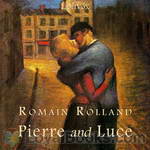 Pierre and Luce
Pierre and Luce
Pierre and Luce were an unlikely young pair who found themselves in the chaos of Paris during the war; Pierre, the shy, recently conscripted pacifist, and Luce, the free spirited artist in training, and both confused about the things going on around them. Why were these war birds flying overhead? Why these warning sirens, and occasional bombs exploding in the distance? Why did the government leaders, who didn't even know one another, hate and destroy so much? Why did these two delicate young adults find each other now? This story takes place between January 30 and Good Friday, May 29, 1918. (Introduction by Roger Melin) | |
By: Burton E. Stevenson (1872-1962) | |
|---|---|
 That Affair at Elizabeth
That Affair at Elizabeth
A detective novel set in turn-of-the-century New York City, in which a young lawyer plays the sleuth. Packed with plot twists (and the ubiquitous romantic complication, of course). ( | |
By: Charles Neville Buck (1879-1930) | |
|---|---|
 The Tyranny of Weakness
The Tyranny of Weakness
Torn between her love for her aging father, a minister steeped in the puritanical values of old New England, and the young Virginian who was born and raised of southern chivalrous tradition, the many and conflicting emotions which stir deep within Conscience Williams envelop this tale of desire, devotion, inner strength, devious treachery, and individuality of spirit. | |
By: Mary Elizabeth Braddon (1835-1915) | |
|---|---|
 Run to Earth
Run to Earth
A captivating Victorian “sensation” novel by the author of Lady Audley's Secret, Run to Earth has it all: scoundrels and mercenaries, love and lust, jealousy, intrigue, and suspense. (Introduction by Gail Mattern) | |
 The Lovels of Arden
The Lovels of Arden
The novel traces the return of a young Englishwoman from several years of schooling abroad, to find that her life will not take up where she thought it would. Clarissa Lovel faced not only an emotionally and financially bereft father, but her first glimpse at love - and that not from the best vantage point. | |
By: Mary Elizabeth Bradden (1835-1915) | |
|---|---|
 John Marchmont's Legacy
John Marchmont's Legacy
"Like Wuthering Heights, the center of this story is a dramatic love triangle, the setting is a huge English manor. Olivia Marchmont has always "done her duty." However, when she falls in love and her beloved is in love with another woman, the malice of her heart is released in full view. In this dramatic tale, the vivid description of the country is also important- as if nature has a part in it. Unlike many novels, nobody gets what they deserve at the end. Or do they? Read and decide for yourself." | |
By: Mary Elizabeth Braddon (1835-1915) | |
|---|---|
 Phantom Fortune, A Novel
Phantom Fortune, A Novel
Lady Maulevrier was once a beautiful socialite, beloved and welcomed in London high society. But her life took a turn for the worse when her husband, whom she married only for his fortune, committed a terrible crime in India. Forty years later, she is taking care of her two granddaughters, Mary and Lesbia. She prefers Lesbia, because of her beauty. Therefore, the relationship between the sisters is tolerable at best. Mary marries the man of her dreams while Lesbia enters London society under the wing of her grandmother's faithful friend... | |
By: Frances Sheridan | |
|---|---|
 Memoirs of Miss Sidney Bidulph
Memoirs of Miss Sidney Bidulph
Sidney and Cecilia are best childhood friends who are forced to part for 5 years. In that interval, Sidney Bidulph - an undoubtedly good and dutiful woman - writes to her friend about everything: her marriage, her children, her other friendships and, above all, about her great love for Mr. Faulkland. In an amazing and unforgettable way, this book shows us that the road to happiness is not always clear - and that sometimes doing what seems to be right is not really the right thing to do. With Rachel's lovely reading, we see her - Sidney Bidulph - as she was meant to be, and as she really is. | |
By: Amelia Opie (1769-1853) | |
|---|---|
 Adeline Mowbray
Adeline Mowbray
Everybody makes mistakes, and everything has a price. This novel describes, according to it's name, the life of Adeline Mowbray, full of everything: sorrow, happiness, falsehood, truth, kindness, and mistakes. This novel is an exploration of the human heart. Be prepaired for a strong and enjoyable read. | |
By: Louis Joseph Vance (1879-1933) | |
|---|---|
 The Lone Wolf
The Lone Wolf
The Lone Wolf is the first of eight books in a series featuring the jewel thief turned private detective Michael Lanyard. With his identity betrayed and the police on his heels, he must fly from Paris, which is made much more difficult by his self-imposed duty to take care of the beautiful Lucia, who has a dark secret of her own...A large number of movies have been based on the books. | |
By: Marguerite of Navarre (1492-1549) | |
|---|---|
 Heptameron of the Tales of Margaret, Queen of Navarre, Vol. 1
Heptameron of the Tales of Margaret, Queen of Navarre, Vol. 1
THE HEPTAMERON, first published posthumously in 1558, is divided into seven complete days containing 10 stories each, and an eighth day containing only 2 stories. The stories, many of which deal with love and infidelity, resulted in "accusations of looseness" by critics of the day. The author, Margaret of Navarre (also known as Margaret of Angoulême) became an influential woman in the intellectual and cultural circles of the French Renaissance. From an 1892 essay by the translator George Saintsbury: "In so large a number of stories with so great a variety of subjects, it naturally cannot but be the case that there is a considerable diversity of tone... | |
 Heptameron of the Tales of Margaret, Queen of Navarre, Vol. 3
Heptameron of the Tales of Margaret, Queen of Navarre, Vol. 3
THE HEPTAMERON (here Volume 3 of 5), first published posthumously in 1558, is divided into seven complete days containing 10 stories each, and an eighth day containing only 2 stories. The stories, many of which deal with love and infidelity, resulted in "accusations of looseness" by critics of the day. The author, Margaret of Navarre (also known as Margaret of Angoulême) became an influential woman in the intellectual and cultural circles of the French Renaissance. From an 1892 essay by the translator George Saintsbury: "In so large a number of stories with so great a variety of subjects, it naturally cannot but be the case that there is a considerable diversity of tone... | |
 Heptameron of the Tales of Margaret, Queen of Navarre, Volume 4
Heptameron of the Tales of Margaret, Queen of Navarre, Volume 4
THE HEPTAMERON (here Volume 4 of 5), first published posthumously in 1558, is divided into seven complete days containing 10 stories each, and an eighth day containing only 2 stories. The stories, many of which deal with love and infidelity, resulted in "accusations of looseness" by critics of the day. The author, Margaret of Navarre (also known as Margaret of Angoulême) became an influential woman in the intellectual and cultural circles of the French Renaissance. From an 1892 essay by the translator George Saintsbury: "In so large a number of stories with so great a variety of subjects, it naturally cannot but be the case that there is a considerable diversity of tone... | |
By: Charles James Lever (1806-1872) | |
|---|---|
 Fortunes of Glencore
Fortunes of Glencore
| |
By: Caroline Lockhart (1871-1962) | |
|---|---|
 Dude Wrangler
Dude Wrangler
Spoiled, handsome, 24 year old Easterner meets pretty, no-nonsense gal from Wyoming, is instantly smitten and does a sea-change to try and impress her in this genial romantic comedy. | |
By: Aiden Wilson Tozer (1897-1963) | |
|---|---|
 The Pursuit of God
The Pursuit of God
"As the heart panteth after the water brooks, so panteth my soul after thee, O God." This thirst for an intimate relationship with God, claims A.W. Tozer, is not for a select few, but should be the experience of every follower of Christ. But, he asserts, it is all too rare when believers have become conditioned by tradition to accept standards of mediocrity, and the church struggles with formality and worldliness. Using examples from Scripture and from the lives of saints who lived with this thirst for God, Tozer sheds light on the path to a closer walk with God. | |
By: Frances Brooke | |
|---|---|
 The History of Lady Julia Mandeville
The History of Lady Julia Mandeville
Lady Julia, the daughter of the Earl of Belmont, and Mr. Henry Mandeville are falling in love. Though Henry is like a family friend, this love is not welcomed because the Lady Julia is promised to someone else (or so Henry thinks). When they discover that they can be together after all, it is much too late. This novel, written in the form of letters, as are a lot of 18th century novels, shows their beautiful and echoing love story through the eyes of many people. | |
By: Captain Charles de Créspigny | |
|---|---|
 Where the Path Breaks
Where the Path Breaks
The soldier awakened from the brink of death eight months after his injury on the battlefield. As he slowly regained his senses and his memory, the face of a girl creeps into his mind, and he soon recalls that this girl had married him out of pity on the day he went into battle. The wedding had been a true "war wedding".".Inspired by the face and the vague recollections which were taking shape, and after learning that his day-bride had since remarried (believing her day-husband killed in action), the battle-scarred soldier decides to re-invent himself, take on a new name, and seek a new life... | |
By: Bjørnstjerne Bjørnson (1832-1910) | |
|---|---|
 Happy Boy
Happy Boy
"A Happy Boy" was written in 1859 and 1860. It is, in my estimation, Bjørnson's best story of peasant life. In it the author has succeeded in drawing the characters with remarkable distinctness, while his profound psychological insight, his perfectly artless simplicity of style, and his thorough sympathy with the hero and his surroundings are nowhere more apparent. This view is sustained by the great popularity of "A Happy Boy" throughout Scandinavia. (From the Preface) Bjørnstjerne Bjørnson received the Nobel Prize in Literature in 1903. | |
By: Dinah Craik (1826-1887) | |
|---|---|
 John Halifax, Gentleman
John Halifax, Gentleman
This novel, published in 1856, was one of the popular and beloved novels in the Victorian era. It is told in the first person by Phineas Fletcher, an invalid son of a Quaker tanner who is presented to us in the beginning as a lonely youth. John Halifax, the first friend he ever had, is a poor orphan who is taken in by his father to help in the work which his sickly son can't constantly do. Phineas tells us in an unforgettable way how John succeeded in rising from his humble beginning and become a wealthy and successful man. But with the money come horrible troubles... In an unforgettable manner, we learn to know all the characters of the novel as if they really lived. | |
By: L. Adams Beck (1862-1931) | |
|---|---|
 The ninth vibration and other stories
The ninth vibration and other stories
This is a collection of the following short stories: The Ninth Vibration -- The Interpreter : A Romance of the East -- The Incomparable Lady : A Story of China with a Moral -- The Hatred of the Queen : A Story of Burma -- Fire of Beauty -- The Building of the Taj Majal -- How Great is the Glory of Kwannon! -- The Round-Faced Beauty. Many of them are romantic, some of them are fantasy and others are occult fiction.(Introduction by Linda Andrus) | |
By: William Congreve (1670 -1729) | |
|---|---|
 The Way of the World
The Way of the World
The Way of the World is a play written by British playwright William Congreve. It premiered in 1700 in the theatre in Lincoln's Inn Fields in London. It is widely regarded as being one of the best Restoration comedies written and is still performed sporadically to this day.The play is based around the two lovers Mirabell and Millamant (originally famously played by John Verbruggen and Anne Bracegirdle). In order for the two to get married and receive Millamant's full dowry, Mirabell must receive the blessing of Millamant's aunt, Lady Wishfort... | |
By: Rex Beach (1877-1949) | |
|---|---|
 Flowing Gold
Flowing Gold
Unfairly given a dishonorable discharge from the army, Calvin Gray goes to Dallas, where he manages to win the trust of a jeweler and is able to sell a number of diamonds to the newly oil rich Briskows. He makes friends with the family and helps them adjust to their newly found riches. The Briskows, in turn, help him prove false the charges that caused his dismissal from the army. | |
By: William Hazlitt (1778-1830) | |
|---|---|
 Liber Amoris
Liber Amoris
Liber Amoris is unlike anything Hazlitt wrote and probably like nothing you've come across before. On the face of it it tells the story of Hazlitt's infatuation with his landlords daughter. Hazlitt was middle aged and she young and pretty, a bit of a coquette from the sound of it. It turned out badly for Hazlitt and the book tells the story of this doomed love. Critics have always been divided about the merit of the piece. Even those who see its merit often feel more comfortable with his polished literary works, and perhaps rightly so... | |
By: Pauline Elizabeth Hopkins (1859-1930) | |
|---|---|
 Contending Forces
Contending Forces
Pauline Elizabeth Hopkins, despite an impressive record of productivity and creativity as a novelist, playwright, short fiction writer, editor, actress, and singer, is an African-American woman writer who has essentially been consigned to the dustbins of American literary history. Though contemporary with Frances Ellen Watkins Harper, Charles W. Chesnutt, and Paul Laurence Dunbar, Hopkins is only now beginning to receive the kind of critical attention that Harper has enjoyed for a slightly longer period and that Chesnutt and Dunbar have always had... | |
By: Francis Hopkinson Smith (1838-1915) | |
|---|---|
 Little Gray Lady
Little Gray Lady
As every Christmas for the last 20 years, the Little Gray Lady lights a candle in her room and spends the evening alone, thinking of a great mistake she has made so long ago. This year, however, things are to play out differently.. | |
By: Susanna Rowson (1762-1824) | |
|---|---|
 Charlotte Temple
Charlotte Temple
Charlotte Temple, a cautionary tale for young women, follows the unfortunate adventures of the eponymous heroine as she is seduced by a dashing soldier, Montraville. Influenced by both her lover and an unruly teacher at her boarding school, she is persuaded to run away to America, where she is eventually abandoned by Montraville after he becomes bored, leaving her alone and pregnant. First published in England in 1791, it went on to become America's bestselling novel, only being ousted by Harriet Beecher Stowe's Uncle Tom's Cabin. | |
By: Charles Norris Williamson | |
|---|---|
 The Golden Silence
The Golden Silence
Trying to get away from an engagement he had got himself into more or less against his will, Stephen Knight travels to Algiers to visit his old friend Nevill. On the Journey there he meets the charming and beautiful Victoria. She is on her way to Algiers to search for her sister, who had disappeared years ago after marrying an Arab nobleman. With the support of his friend, Stephen Knight decides to help the girl - but when she also disappears, the adventure begins... | |
By: May Sinclair (1863-1946) | |
|---|---|
 Life and Death of Harriett Frean
Life and Death of Harriett Frean
Harriett Frean is a well-to-do, unmarried woman living a life of meaningless dependency, boredom, and unproductivity as she patiently cares for her aging parents, waiting for a man to marry. When her opportunity for Love finally comes, she is offered a moral dilemma: the man is engaged to her best friend. Should she sacrifice what, according to the priorities of the time, seems like her "one chance for happiness," or should she seize the moment? Can she make something meaningful of her life without... | |
 Tysons
Tysons
Another frank May Sinclair exploration of fin de siècle English love and sex, marriage and adultery, "The Tysons" is the story of the caddish Nevill Tyson and his beautiful but frivolous young wife Molly. Sinclair uses a different narrative voice than we hear in much of her fiction, a sort of witty Jane Austen archness as she dissects the characters of the provincial village Drayton Parva. As always, she demonstrates an intriguing mixture of Victorian prudishness and modern free-thinking, particularly in her rendering of the sexual escapades of her characters... | |
By: Amelia E. Barr (1831-1919) | |
|---|---|
 Maid of Maiden Lane
Maid of Maiden Lane
The Maid of Maiden lane is a wonderful love story in which Mrs. Barr intertwines the hot political and social issues that were occurring in America during the last decade of the 18th century with an excellent love story plot. Some of those issues include: the moral dilemma and debate over the French Revolution, and how that event touched the lives of the immigrants in America; the prejudices between the immigrants from England, and those from France or Holland, and how those animosities affected the ordinary lives of the people; and the political debate over titles, foreign policy, and such things(for example)as where the capital of the nation was to reside, New York or Philadelphia... | |
By: Lord George Gordon Byron (1788-1824) | |
|---|---|
 Don Juan, Cantos 13 -16
Don Juan, Cantos 13 -16
These are the last four Cantos of his mock epic that Byron completed in the year before his death at the age of 36 in Messolonghi, Greece, where he had gone to fight for the nationalists against the Ottoman Empire. Juan, now in England, is invited to spend the autumn with a hunting party at the ancient country seat of Lord Henry and Lady Adeline Amundeville. There, he meets the most intriguing of the Byronic heroines, Aurora Raby, and is visited by a ghost with ample breasts (!). That is the narrative outline but hardly the focus of the last Cantos... | |
By: A. E. W. Mason (1865-1948) | |
|---|---|
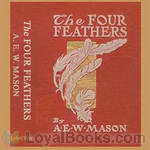 The Four Feathers
The Four Feathers
The Four Feathers is a 1902 adventure novel by British writer A.E.W. Mason that has inspired many films of the same title.The novel tells the story of British officer, Harry Feversham, who resigns his commission in the East Surrey Regiment just prior to Sir Garnet Wolseley's 1882 expedition to Egypt to suppress the rising of Urabi Pasha. He is faced with censure from three of his comrades for cowardice, signified by the delivery of three white feathers to him, from Captain Trench and Lieutenants Castleton and Willoughby, and the loss of the support of his Irish fiancée, Ethne Eustace, who presents him with the fourth feather... | |
By: Emma Wolf (1865-1932) | |
|---|---|
 Other Things Being Equal
Other Things Being Equal
Ruth Levice, the daughter of a rich San Francisco Jewish merchant, meats Dr. Herbert Kemp, and they slowly fall in love. However, she is Jewish and he is not. Can love overcome such an obstacle? And what is more important, duty or love? | |
By: E.D.E.N. Southworth (1819-1899) | |
|---|---|
 The Missing Bride
The Missing Bride
Prepare yourself for a journey, full of adventures and plot twists which will keep you guessing until the very end. This is psychological romance at its best. In the war of 1814, an American heiress falls in love with a British officer. This ill-fated marriage brings together a large group of interesting people who would never have met in other circumstances. | |
By: Mary Jane Holmes (1828-1907) | |
|---|---|
 Tempest and Sunshine
Tempest and Sunshine
Tempest and Sunshine is the first book written by Mary Jane Holmes. Set in the pre-Civil War south, it follows the struggles and romances of two sisters, as different as night and day; blonde Fanny and dark haired Julia. (Introduction by jedopi) | |
By: H. C. Bailey (1878-1961) | |
|---|---|
 The Highwayman
The Highwayman
A romance and adventure novel, set in England during the reign of Queen Anne. The book is much unlike the author's later detective short stories. The actual book is difficult to locate and appears to have been forgotten. It is not even listed by Wiki as part of the author's work, nevermind have any information on the book itself. | |
By: Gertrude Atherton (1857-1948) | |
|---|---|
 Daughter Of The Vine
Daughter Of The Vine
We are introduced to Englishman Dudley Thorpe on the evening of his arrival in California. At a ball, he is introduced to several belles, including the lovely Nina Randolph. Is this the start of something special? Dudley thinks so, but what about Nina? Why won't she open herself up to love? She is obviously attracted to Dudley. What is the dark secret she is hiding? Will it make a difference to Dudley's feelings? Who will be there for her in her time of need? Dudley or her odious cousin, Richard Clough? And what will San Francisco society make of it all? | |
 Sleeping Fires
Sleeping Fires
The story of a love so strong that neither the rigid rules of Society in California in the 1800s nor the very bowels of hell could keep a young woman from the love she had found. A story rich in fashion ad feminism showing how determination and love could overcome all obstacles. | |
By: Edward P. Roe (1838-1888) | |
|---|---|
 He Fell in Love with His Wife
He Fell in Love with His Wife
James desperately needs someone to help him keep his farm going, but has failure after colossal failure finding a good housekeeper. Alida marries a man only to find out he's already married. She's so undone when she finds out that she just wants to go somewhere where no one will judge her for her misfortune, where she can work and keep herself fed and clothed. James and Alida meet and arrange for a strictly business marriage, leaving loving and honoring out of the vows. The title of the book tells the rest of the story, but the way it gets there is worth the journey. (Introduction by TriciaG) | |
By: Henry Drummond | |
|---|---|
 The Greatest Thing in the World and Other Addresses
The Greatest Thing in the World and Other Addresses
The spiritual classic The Greatest Thing In the World is a trenchant and tender analysis of Christian love as set forth in the thirteenth chapter of I Corinthians. The other addresses speak to other aspects of Christian life and thought. | |
By: William S. Gilbert (1836-1911) | |
|---|---|
 The Pirates of Penzance
The Pirates of Penzance
The Pirates of Penzance; or, The Slave of Duty is a comic opera in two acts, with music by Arthur Sullivan and libretto by W. S. Gilbert. The story concerns Frederic, who, having completed his 21st year, is released from his apprenticeship to a band of tender-hearted pirates. He meets Mabel, the daughter of Major-General Stanley, and the two young people fall instantly in love. Frederic finds out, however, that he was born on 29 February, and so, technically, he only has a birthday each leap year... | |
By: Henry Gilbert (1868-1937) | |
|---|---|
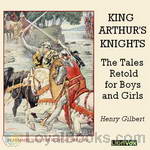 King Arthur's Knights: The Tales Retold for Boys & Girls
King Arthur's Knights: The Tales Retold for Boys & Girls
This book is an attempt to tell some of the stories of King Arthur and his Knights in a way which will be interesting to every boy and girl who loves adventures. (Introduction by Henry Gilbert) | |
By: Edward M. Hull (1880-1947) | |
|---|---|
 Sheik
Sheik
The novel on which the famous silent movie starring Rudolf Valentino was based. The plot is set in motion as Lady Conway disapproves of Diana's planning a desert trip with just her Arab guides to accompany her. Diana gets kidnapped by the Sheik, Ahmed Ben Hassan. Finally allowed to ride in the desert alone, she plans an escape. However, the Sheik recaptures her. And so the story unfolds. | |
By: Mrs. Henry Wood (1814-1887) | |
|---|---|
 Channings
Channings
This is a saga about life in a small town in England during the Victorian era. The "stars" of this saga are the Channings. Mr. Channing was ill and, because of his poverty, his six children have to work. Many things happen during this saga: a man confesses to a theft which he thinks his brother did, a lady is engaged to a gentleman much above her station, and so much more. But in the middle of all this you can find plenty of family love. | |
By: Frances Milton Trollope (1779-1863) | |
|---|---|
 Vicar of Wrexhill
Vicar of Wrexhill
A villainous vicar insinuates himself into the life of a wealthy but foolish widow, ruining the fortunes and happiness of her three children, until they begin to fight back. Published in 1837 by the mother of the better-known Anthony Trollope, this highly readable romance portrays the evangelical movement of the Anglican church in a shocking light that may remind readers of some of the religious abuses of the present day. | |
By: Reuel Howe (1905-1985) | |
|---|---|
 Herein is Love
Herein is Love
Prescient look at the church, its message and role in society, both perceived and true, focused through the lens of the biblical doctrine of love, and demonstrated in relationships between parent and child, parishioners and public, and pastor and people. | |
By: Margaret Widdemer (1884-1978) | |
|---|---|
 Rose Garden Husband
Rose Garden Husband
This novel was written by Margaret Widdemer, who won the Pulitzer prize for her collection of poetry in 1919. Phyllis is a 25-years-old children's librarian. She is good at her job. Yet when she sees a girl from her hometown with two children, she discovers she wants more. She marries an invalid who is expected to die. Would she find the love and sense of belonging she craves for? And would he really die? Note: This book is in the public domain in the USA. The author died in 1978 so may still be protected by copyright in many other countries. | |
By: Henry Austin Dobson (1840-1921) | |
|---|---|
 "You Bid Me Try"
"You Bid Me Try"
Henry Austin Dobson, commonly Austin Dobson, was an English poet and essayist. His official career was uneventful, but as a poet and biographer he was distinguished. Those who study his work are struck by its maturity.It was about 1864 that he turned his attention to writing original prose and verse, and some of his earliest work was his best. It was not until 1868 that the appearance of St Paul’s, a magazine edited by Anthony Trollope, gave Harry Dobson an opportunity and an audience; and during the next six years he contributed some of his favourite poems, including “Tu Quoque,” “A Gentleman of the Old School,” “A Dialogue from Plato,” and “Une Marquise... | |
By: Eleanor M. Ingram (1886-1921) | |
|---|---|
 Game and the Candle
Game and the Candle
Faced with inherited debts, an estate to maintain, and no money to pay for either, brothers John and Robert Allard have a difficult decision to make. How much of their integrity are they willing to compromise in order to save their aunt and cousin from a life of poverty and to preserve "all that they call life"? Two young men with a classical education, no trade, and no outstanding talents have little chance to make the fortune they need while staying on the right side of the law. Especially as they only have six months..... ( | |
By: Will Lillibridge (1878-1909) | |
|---|---|
 Arcadia in Avernus
Arcadia in Avernus
Unhappy wife leaves marriage of convenience for another man, the couple running away to the Dakota prairie to set up housekeeping. All seems romantically well... until the ex shows up. Surprisingly modern (if a little theatrical) novella from the early 1900's. From the posthumous collection of Lillibridge short stories, A Breath of Prairie, 1911. | |
By: August von Kotzebue (1761-1819) | |
|---|---|
 Lover's Vows
Lover's Vows
Lovers' Vows (1798), a play by Elizabeth Inchbald arguably best known now for having been featured in Jane Austen's novel Mansfield Park (1814), is one of at least four adaptations of August von Kotzebue's Das Kind der Liebe (1780; literally "Child of Love," or "Natural Son," as it is often translated), all of which were published between 1798 and 1800. Inchbald's version is the only one to have been performed. Dealing as it does with sex outside marriage and illegitimate birth, Inchbald in the Preface to the published version declares herself to have been highly sensitive to the task of adapting the original German text for "an English audience... | |
By: Sarojini Naidu (1879-1949) | |
|---|---|
 Golden Threshold
Golden Threshold
Sarojini Naidu was a remarkable woman. Known as the Nightingale of India, she started writing at the age of thirteen and throughout her life composed several volumes of poetry, writing many poems which are still famous to this day. As well as being a poet, Naidu was an activist and politician, campaigning for Indian independence and became the first Indian woman to attain the post of President of the Indian National Congress. This volume contains the beautiful 'Indian Love-Song', as well as many other moving verses... | |